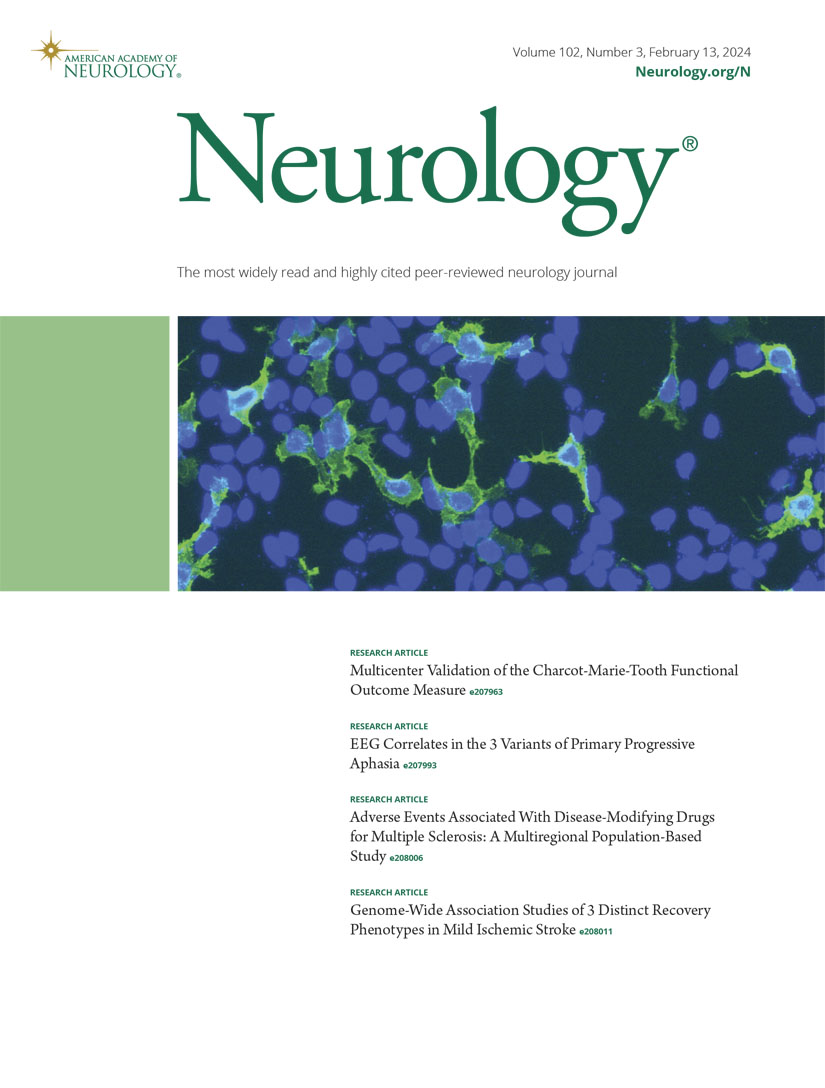Opinion & Special Articles: Beyond Pronouns-Educating Trainees on the Impact of Language on Gender Inclusivity in Neurologic Practice.
IF 7.7
1区 医学
Q1 CLINICAL NEUROLOGY
引用次数: 0
Abstract
Language plays an important role in ensuring gender inclusivity within neurology. Despite progress in language inclusivity, such as the emergence of explicit pronouns, more remains to be done. Historically, sex and gender have been used interchangeably, but they are, in fact, distinct concepts. This is an important distinction particularly in the care of transgender and gender diverse (TGD) individuals, whose assigned sex and gender are incongruent. In the health care setting, TGD individuals frequently report misgendering, identity invalidation, and gender pathologizing, which have led to health care avoidance and mistrust. Ultimately, to ensure effective integration of gender-affirming language into clinical care, training should be introduced early in neurology residency and fellowship education. Through 3 case studies in epilepsy, multiple sclerosis, and stroke, we discuss language use in neurology and provide recommendations to support trainees in the use of gender-affirming language. We underscore the importance of gender-affirming language in health care equity and cultivating a safe, inclusive clinical environment. It is crucial for residents and fellows to not only be informed on cultural humility and gender-affirming terminology but also learn to avoid assumptions and seek clarification about gender identity when needed. Ultimately, trainees proficient in these skills cultivate trust in clinical relationships, reduce discrimination against TGD populations, and improve patient health outcomes in neurologic care.求助全文
约1分钟内获得全文
求助全文
来源期刊

Neurology
医学-临床神经学
CiteScore
12.20
自引率
4.00%
发文量
1973
审稿时长
2-3 weeks
期刊介绍:
Neurology, the official journal of the American Academy of Neurology, aspires to be the premier peer-reviewed journal for clinical neurology research. Its mission is to publish exceptional peer-reviewed original research articles, editorials, and reviews to improve patient care, education, clinical research, and professionalism in neurology.
As the leading clinical neurology journal worldwide, Neurology targets physicians specializing in nervous system diseases and conditions. It aims to advance the field by presenting new basic and clinical research that influences neurological practice. The journal is a leading source of cutting-edge, peer-reviewed information for the neurology community worldwide. Editorial content includes Research, Clinical/Scientific Notes, Views, Historical Neurology, NeuroImages, Humanities, Letters, and position papers from the American Academy of Neurology. The online version is considered the definitive version, encompassing all available content.
Neurology is indexed in prestigious databases such as MEDLINE/PubMed, Embase, Scopus, Biological Abstracts®, PsycINFO®, Current Contents®, Web of Science®, CrossRef, and Google Scholar.
 求助内容:
求助内容: 应助结果提醒方式:
应助结果提醒方式:


